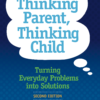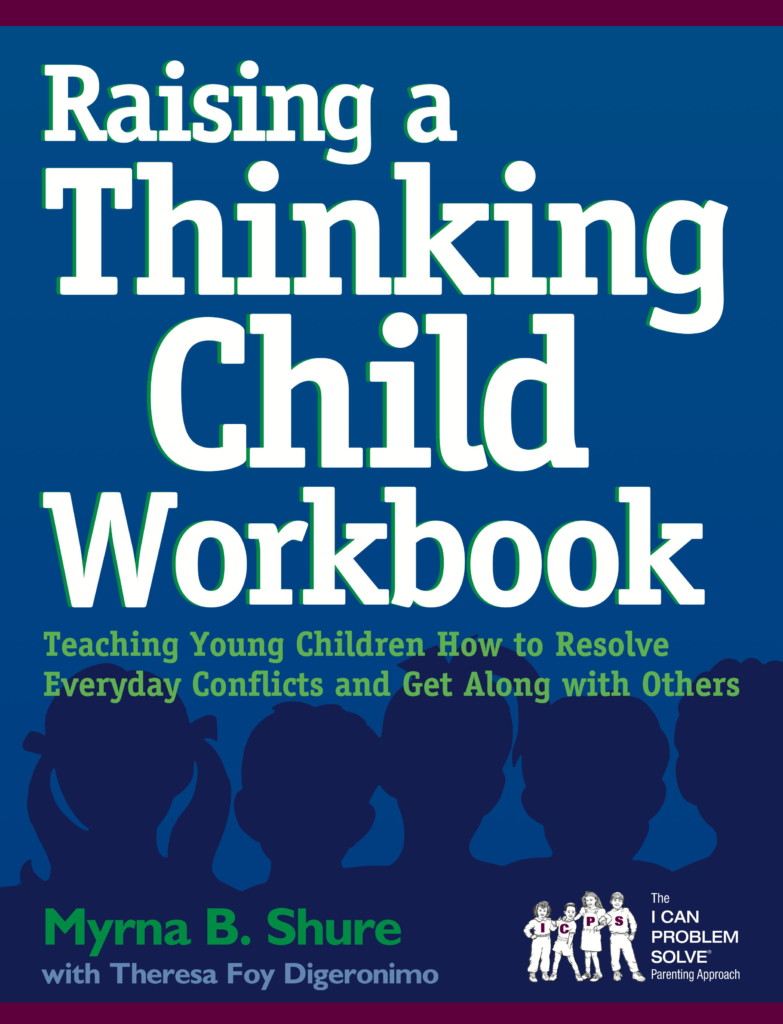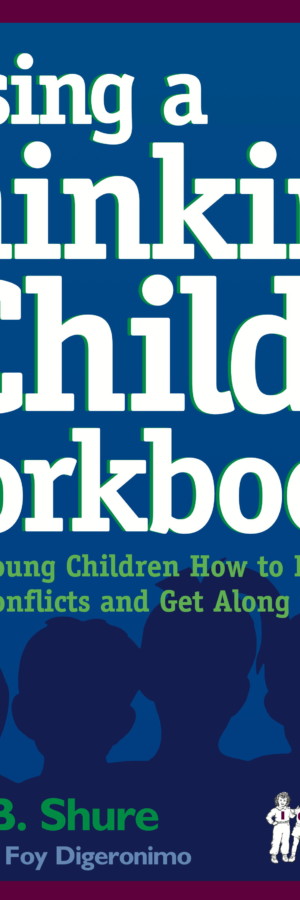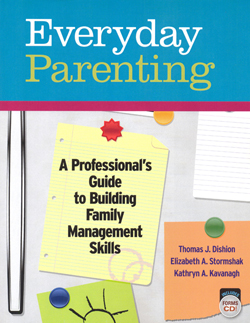In the second edition, internationally acclaimed author Dr. Myrna B. Shure shows how to apply “I Can Problem Solve” techniques to the top concerns of parents and children from preschoolers through preteens.
With updated research, three completely new chapters, and numerous new problem-solving scenarios, the book offers a sensible way for parents to help their children learn how to think, not what to think.
“Dr. Shure’s research and ideas have been the primary foundation of my work since the 1970s. She shows us that we can help children learn to solve problems, think about their behavior, and learn from what happens in their lives. Following her clear, practical suggestions helps us teach and raise strong, independent, caring, and resilient young people. This book combines examples, sample dialogues, and a wide range of relevant research to support parents and guardians in raising responsible, reflective, and resourceful youth. Highly recommended!”
— �Stan Davis
School counselor, author and
co-researcher, Youth Voice Project
“Dr. Shure empowers parents to boost their children’s emotional thinking skills. Her real-life vignettes reveal that children can learn how to create solutions for their problems.”
— Alice S. Honig, PhD
Professor emerita, child development, Falk College, Syracuse University
“Dr. Shure provides parents with valuable techniques for helping youth develop social-emotional skills. Parents learn to discuss self-management strategies and help children reflect on their emotions using ‘I Can Problem Solve’ (ICPS) vocabulary. Shure’s book guides parents to assist children with generating alternative solutions to real-life problems using her unique ICPS dialogue process. A must-read for all parents and caregivers.”
—Stephanie Colvin-Roy
Center for Schools and Communities
“During over 30 years of using the problem-solving approach by Myrna Shure with parents, teachers, and families, I have experienced the satisfaction of observing the empowerment of both adult and child, which endures across time and place, increasing bonding and executive functioning.”
—Bonnie Aberson, PsyD, ABN
Pediatric neuropsychologist, in private practice
“Based on many years of research and development, the book carries on the tradition of Benjamin Spock as a resource for giving self-confidence to parents and support to their children.”
—James G. Kelly, PhD
Professor emeritus, psychology,
University of Illinois at Chicago
“Unlike the advice of so many “parenting experts,” the effectiveness of Dr. Shure’s work has been scientifically validated. If you want to prepare your child to become a happy, successful, functional adult, this book is a must.”
—Sam Goldstein, PhD
Coauthor, Raising Resilient Children
“Myrna Shure’s approach stresses the necessity of having both child and parent learn to think through effective strategies for handling common problems. This balanced perspective will find a solid endorsement from today’s guilt-laden parents, who hear all too often that the responsibility for harmonious family functioning lies totally with them.”
— Bettye Caldwell, PhD
Past president, National Association for the Education of Young Children
“Myrna Shure applies her unique and proven problem-solving approach to a wide range of challenges and helps parents think through sensible and usable solutions.”
— Susan Ginsberg, EdD
Editor and publisher, Work and Family Life newsletter
Part 1—Dealing with Feelings
- Anger
- Frustration and Disappointment
- Stress, Worries, Fears, and Trauma
- Coping with Loss
- Caring and Empathy
- Self-Esteem and Sense of Control
Part 2—Handling and Preventing Problems
- Time and Timing: Bedtime, Procrastination, Interrupting, Impatience
- Possessiveness
- Defiance, Tattling, and Lying
- Physical Aggression, Bullies, and Victims
- Emotional Aggression
- Talking with Kids About Safe Behaviors, Risky Behaviors, and Violence
Part 3—Nurturing Relationships
- Family Ties
- Sibling Rivalry
- Peers
Part 4—Building Life Skills
- Listening
- Safety
- Responsibility
- Health and Fitness
- School, Homework, and Learning
- Creativity and the Arts





